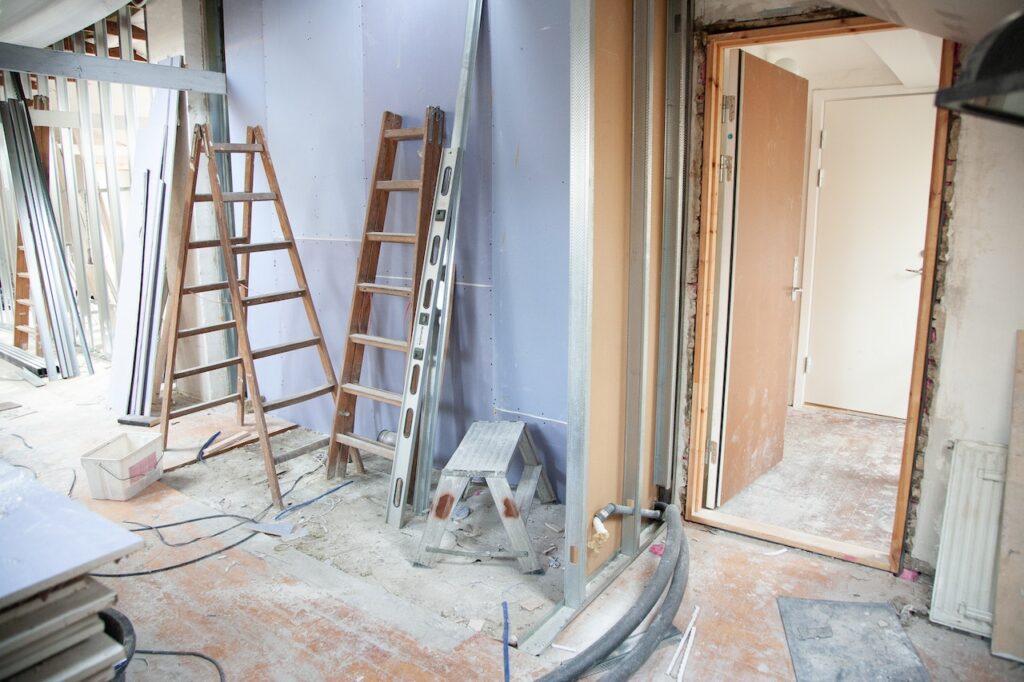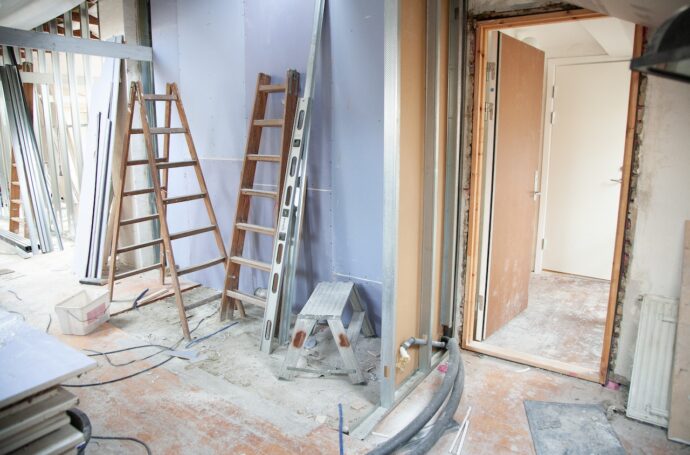 Renovating an entire home can cost hundreds of thousands. Instead of doing so, many households are turning to only renovating certain parts of their home.
Renovating an entire home can cost hundreds of thousands. Instead of doing so, many households are turning to only renovating certain parts of their home.
Whether they might be renovating to sell, or looking to grow their property’s long-term value, there are certain areas of the home where attention should be drawn to. This is because renovating these areas could help to provide a much greater return on investment.
Firstly, it is important to address any underlying issues that the property may already have, such as mould. These issues should be prioritised before any cosmetic changes are to be made. This is because sorting these out can help to prevent the property from losing any value.
Kitchens and Bathrooms
Renovating both kitchens and bathrooms could help to make a noticeable impact upon potential buyers and valuers.
While entirely updating either can be costly, there are ways to update them without spending too much. For instance, updating the cabinets with a new paint or finish, and handles and knobs can freshen up the kitchen without the need to remove and replace existing tiles for instance.
If the budget can extend, it may be worth considering knocking down any walls surrounding the kitchen to allow for a more open plan layout.
When it comes to bathrooms, little changes can be made which can make a big difference. This could include replacing only chipped or damaged tiles and changing the taps and showerhead. These can help to create a new feel, without making any drastic changes such as plumbing.
Many people consider their bathroom as a kind of personal “retreat” from the world, so little changes you can make to encourage this could make a big difference. Replacing chipped tiles, replacing outdated vanities, and changing the taps and showerhead can all contribute to creating a new look and feel, without needing to make big changes to plumbing and the like.
The Garden
The front garden, or porch, is the first thing that prospective buyers will see when viewing your property. As such, it is important to utilise this area to make a good impression. Updates could include clearing up the path, replacing the driveway paving or the front door. Further and less costly updates could include hanging flower baskets outside the front door and planting colourful flowers, as well as freshening up the exterior paint.
Often, low maintenance gardens are appealing to prospective homeowners who may have limited gardening knowledge or experience so this is also something to consider.
Increasing Natural Light in the Home
Lighting is key in changing how someone might view a property.
Depending on factors such as structure and layout, adding or expanding windows or skylights to introduce more natural light could contribute towards increasing the value of a property.
A cheaper option could also be to strategically place mirrors to make the space feel bigger and brighter.
Increasing Storage Space
Providing prospective homeowners or new tenants with additional space to store their belongings can really help to increase the appeal, and thus value, of a property.
Ways of doing so could include adding in built-in wardrobes, or a walk-in storage room. Additionally, improving a garage’s capacity for storage space can also make a big difference too.
New Paint
A fresh coat of paint can freshen up any space and increase its appeal. This is also a relatively low-cost renovation option and can even be done without seeking a professional painter.
It is thus certainly worth researching which paint colours are the most popular at the moment, as this will help to make the property appear more modern.
How Can a New Renovation be Financed?
Often, many may dip into their savings to fund any renovations to their property. Alternatively, there are a number of finance routes that can be pursued. These include the following:
- Refinancing a mortgage
- Applying for a construction loan
- Withdrawing money from a mortgage offset account
- Taking out a personal loan








